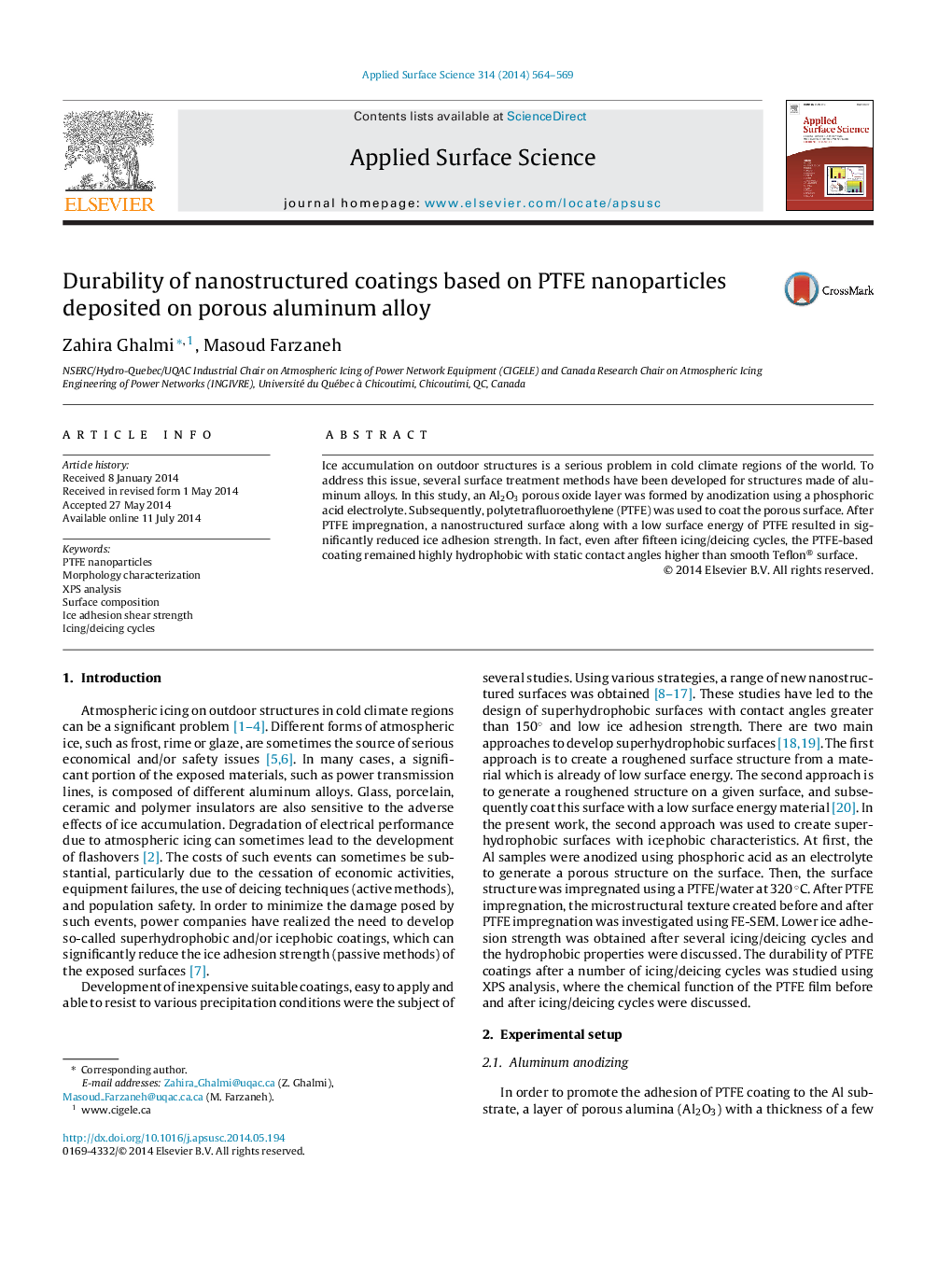| Article ID | Journal | Published Year | Pages | File Type |
|---|---|---|---|---|
| 5358399 | Applied Surface Science | 2014 | 6 Pages |
Abstract
Ice accumulation on outdoor structures is a serious problem in cold climate regions of the world. To address this issue, several surface treatment methods have been developed for structures made of aluminum alloys. In this study, an Al2O3 porous oxide layer was formed by anodization using a phosphoric acid electrolyte. Subsequently, polytetrafluoroethylene (PTFE) was used to coat the porous surface. After PTFE impregnation, a nanostructured surface along with a low surface energy of PTFE resulted in significantly reduced ice adhesion strength. In fact, even after fifteen icing/deicing cycles, the PTFE-based coating remained highly hydrophobic with static contact angles higher than smooth Teflon® surface.
Related Topics
Physical Sciences and Engineering
Chemistry
Physical and Theoretical Chemistry
Authors
Zahira Ghalmi, Masoud Farzaneh,
